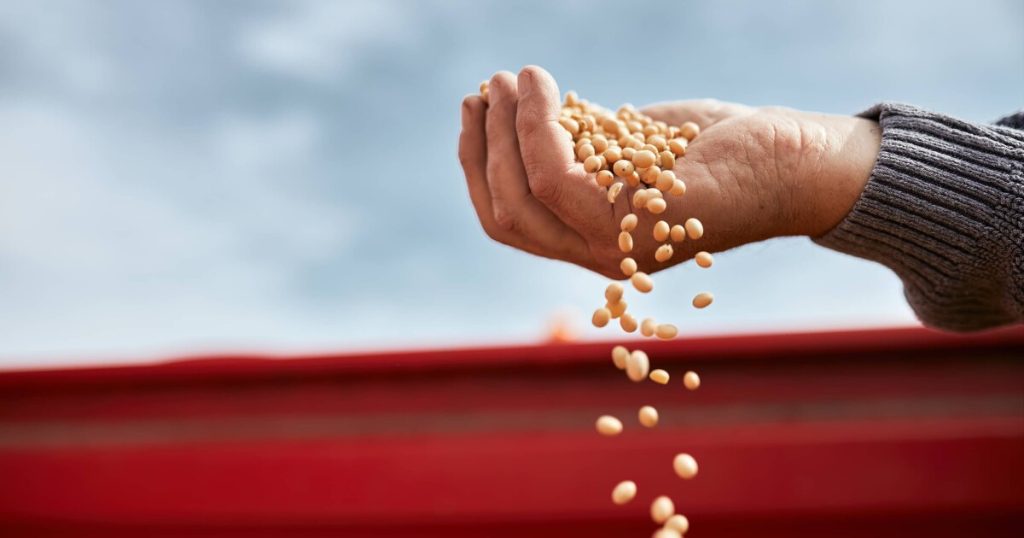Poland announced that it would stop arms aid to Ukraine due to the grain dispute. However, Poland was one of the most loyal supporters of the Kiev administration after Russia’s invasion of Ukraine.
Polish-Ukrainian Relations Encountered A Major Obstacle Due To The Grain Export Problem.
The leaders of the two countries used their visits to the United Nations (UN) Headquarters in front of the world public opinion to attack each other. Polish President Andrzej Duda, speaking to reporters, questioned how grateful Ukraine was for foreign aid and compared the country to a drowning person. “A drowning person is very dangerous because he can pull you to the deepest depths. He can easily drown the rescuer,” Duda said.
A few hours later, Ukrainian President Volodymyr Zelenskiy responded to Poland. he responded. Zelenskiy said it was worrying that some of his friends in Europe were showing solidarity by “turning a cereal thriller in a political theater”. The Warsaw administration condemned Zelenskiy and announced that it would stop supplying weapons to its neighbor. This decision could have potentially major war consequences for Ukraine.
What Triggered The Grain Conflict?
Ukraine is a major grain producer. The Ukrainian war, which started with the Russian invasion, caused a worldwide grain problem because export routes in the Black Sea were largely cut off. Some analysts attribute Poland’s decision to the upcoming elections in the country and say that the decision was taken for political reasons.

Ukraine had to find alternative land routes for grain products, which caused large amounts of grain to reach Central Europe and grain prices to fall in the countries in the region. To protect local farmers, the European Union (EU) has temporarily banned grain imports to five countries (Bulgaria, Hungary, Poland, Romania and Slovakia). The EU chose not to extend the ban, which ended on September 15. However, Hungary, Slovakia and Poland maintained the ban.
Ukraine took the issue to the World Trade Organization (WTO), saying this was a violation of international obligations. However, Poland announced that the ban would continue. The EU’s executive body, the European Commission, says it is not the responsibility of member states to decide on broader trade policy for the bloc’s member states. Before the elections to be held in Poland on October 15, the ruling Law and Justice Party wants to appear to defend the country’s farmers and is hardening its rhetoric.
What Did The Ukrainian Grain Agreement Foresee?
When Russia invaded Ukraine on February 24, 2022, its navy blockaded the country’s ports on the Black Sea, leaving 20 million tons of grain waiting for export in the ports. This situation caused food prices to rise rapidly in the world and created a threat of famine in Middle Eastern and African countries that import significant amounts of food from Ukraine.
An agreement was reached between Russia and Ukraine in July 2022 – under the mediation of Turkey and the United Nations (UN). The agreement allowed cargo ships to move along a corridor in the Black Sea. The corridor between Ukrainian ports was 310 nautical miles long and 3 nautical miles wide.

The agreement helped Ukraine export approximately 33 million tons of grain. Thus, global food prices fell by approximately 20 percent, according to the UN Food and Agriculture Organization. However, Russia withdrew from the agreement. According to the UN Food Price Index, grain prices in the world increased again after Moscow’s decision. Russia says it can fill the gap. Meeting with African leaders in July, Russian President Vladimir Putin promised to send free grain to at least six African countries – Burkina Faso, Central African Republic, Eritrea, Mali, Somalia and Zimbabwe – for the next four months. Putin said at the beginning of the month that free grain exports would begin “in a few weeks.”
What Weapons Are Being Sent To Ukraine?
Both Poland and Ukraine inherited large stockpiles of Soviet-era weapons following the collapse of the Soviet Union.
Ukraine was happy with its Cold War-era weapons. Because he had been using these weapons for a very long time. Poland was equally pleased to donate its old weapons to Ukraine and to stockpile new weapons it had purchased from the West.
However, after the arms aid provided to Ukraine, Poland’s military equipment was depleted by approximately one third. Poland sent 320 tanks and 14 MiG-29 fighter jets from the Soviet era to Ukraine. The grain dispute, however, cast future arms deliveries into doubt.
Polish Government Spokesperson Piotr Müller said that in accordance with the agreements signed with Ukraine, only pre-agreed ammunition and weapons will be sent to this country. Under these conditions, the Polish arms company PGZ is expected to send approximately 60 Krab artillery guns to Ukraine in the coming months.

